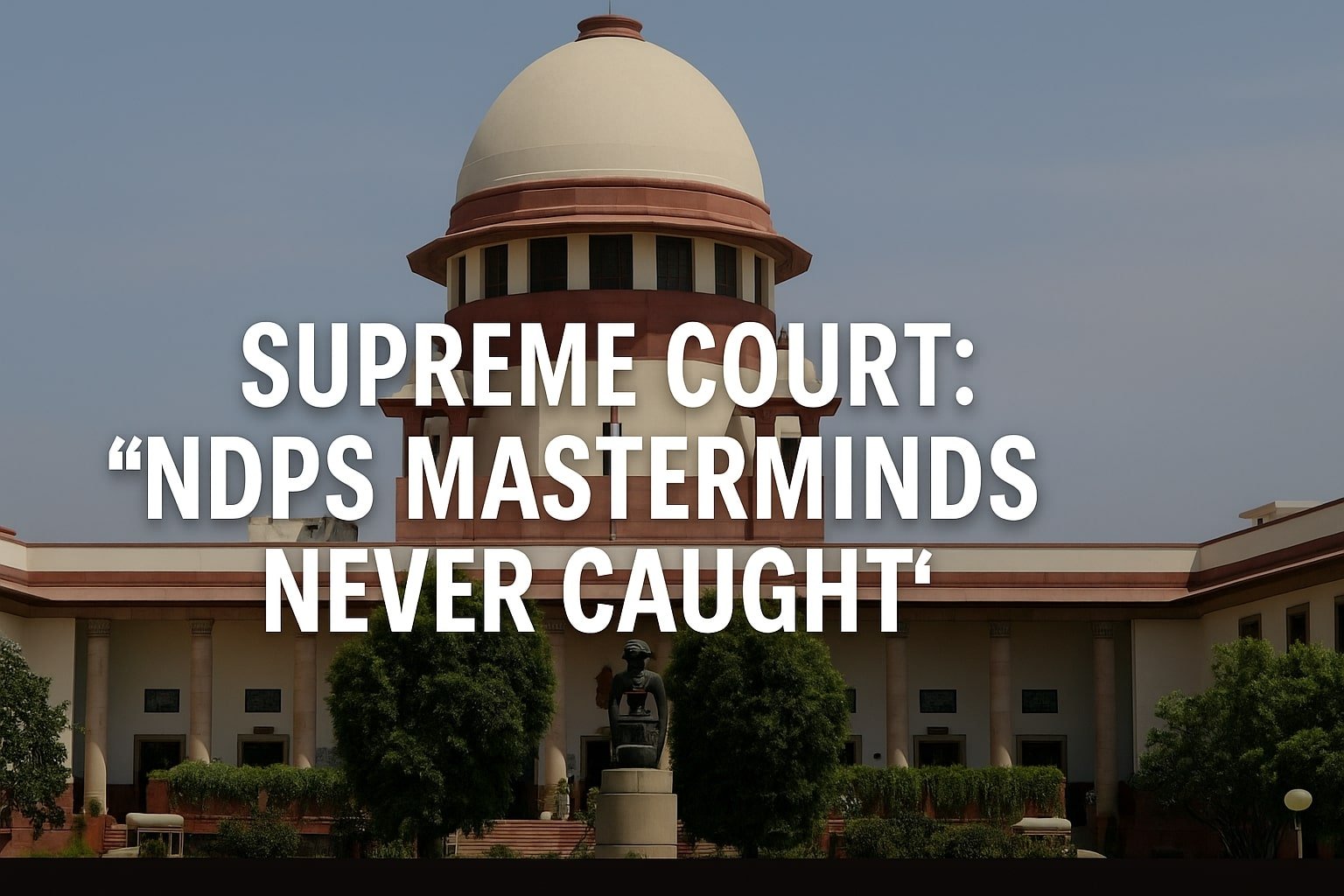New Delhi: In a scathing observation on the country’s handling of drug trafficking cases, the Supreme Court of India on Friday expressed serious concern over the failure of investigative agencies to arrest the real masterminds behind the illicit narcotics trade. The court remarked that in most NDPS (Narcotic Drugs and Psychotropic Substances) cases, only small-time peddlers or couriers are arrested, while the main suppliers and financiers continue to operate behind the scenes.
“The masterminds are never arrested” — Supreme Court expresses concern
A Bench comprising Justice M.M. Sundresh and Justice Vipul M. Pancholi made the remarks during a hearing, observing:
“In NDPS cases, the masterminds are never arrested. They always remain in the shadows. It is always A, B, C, or D who get caught. In how many cases have the real masterminds been charged? How many sources have been traced? Where do these illegal substances come from?”
FCRF Launches CCLP Program to Train India’s Next Generation of Cyber Law Practitioners
The court questioned the effectiveness of current drug investigations, stating that surface-level arrests and minor recoveries fail to expose the larger, organised international networks operating behind the narcotics trade. It emphasised that law enforcement agencies must move beyond targeting small offenders and instead identify the financiers, chemists, and international supply chains driving the drug ecosystem.
Comments made during Gurjeet Singh’s bail plea
The Supreme Court’s observations came while hearing a bail plea filed by Gurjeet Singh, who was arrested by the Narcotics Control Bureau (NCB) in Ludhiana, Punjab, for allegedly being part of a large-scale methamphetamine manufacturing and international trafficking racket.
Earlier, in February 2024, the Delhi High Court had rejected Singh’s bail plea, observing that:
“The evidence on record, including witness statements, recoveries, financial trails, and digital forensics, clearly indicates the accused’s active role in an organised international network.”
The High Court held that Singh’s actions attracted provisions under Section 29 of the NDPS Act (criminal conspiracy), given his alleged coordination with multiple operatives across borders.
“We all know the truth, but we must answer our conscience” — Supreme Court
Expressing dismay at the pattern of arrests in NDPS cases, the apex court remarked:
“It is unfortunate that we all know the truth, yet we must answer to our conscience. Merely arresting small offenders will never help us reach the root of the problem.”
The bench declined to grant bail to Gurjeet Singh but allowed him to withdraw his petition to approach the trial court for appropriate relief.
The fight against drugs remains incomplete
The Supreme Court’s remarks extend beyond one case, reflecting a broader judicial concern over India’s escalating drug problem. The court underscored that true justice in NDPS cases can only be achieved when the masterminds and financiers are brought to book, not just the street-level offenders.
This observation serves as a stern reminder to investigative agencies that the battle against narcotics will remain incomplete until the real architects and international syndicates behind the drug trade are exposed and prosecuted.


